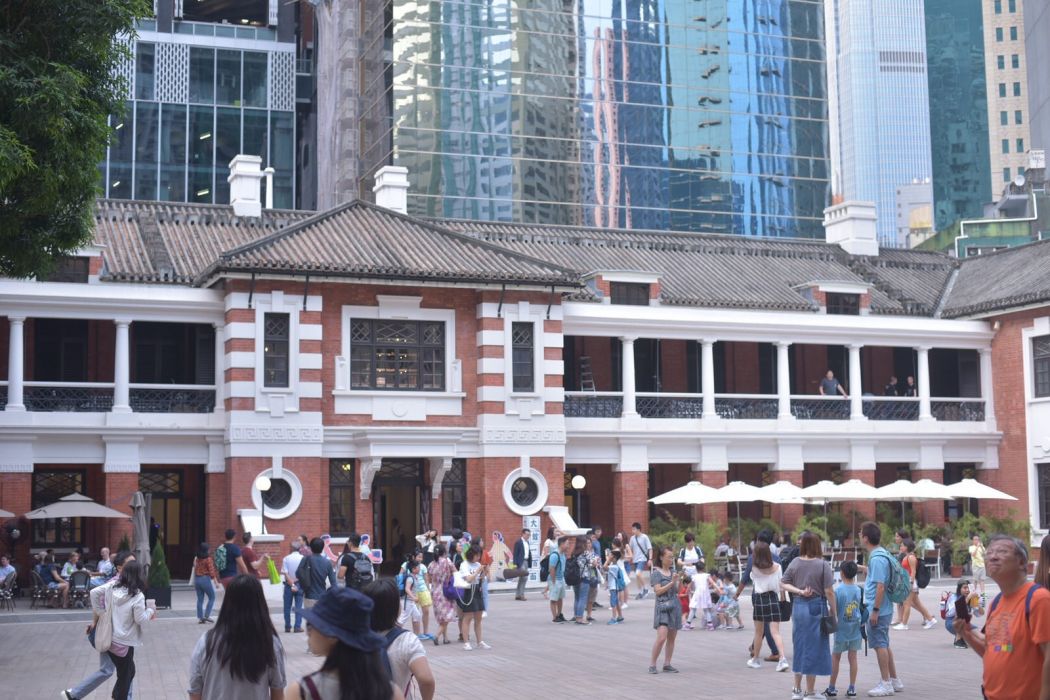The director of Hong Kong art space Tai Kwun has said that they do not want the venue to promote any individual’s political interests. The statement came after it cancelled two Hong Kong International Literary Festival events with Chinese writer Ma Jian.
On Wednesday, the exiled author tweeted that his book launch events at the new art space in Central “can no longer be held,” triggering criticism from free expression NGOs.
In a statement on Thursday, Director of Tai Kwun Timothy Calnin said the space is a vibrant cultural hub for the entire community: “We do not want Tai Kwun to become a platform to promote the political interests of any individual.” He added that they are working with the literary festival to find a new venue.

Ma – who was born in Qingdao but lives in the UK – initially said he was given no reason for the cancellation.
After knowing the reason for the cancellation, he said: “I wouldn’t use Tai Kwun as a platform to promote my ‘political interests’. I’m a novelist, not an activist, and am attending the Festival to discuss my new novel, China Dream. My ‘politics’ are simple: I believe in free thought and free speech. Without them, life has no meaning.”
An English translation of his book China Dream was published last Thursday. It is presented as “biting satire of totalitarianism” in China.
The book’s introduction said it was a “poetic and unflinching fable about tyranny, guilt, and the erasure of history, by the banned Chinese writer hailed as ‘China’s Solzhenitsyn’.”
I wouldn’t use Tai Kwun as a platform to promote my ‘political interests’. I’m a novelist, not an activist, and am attending the Festival to discuss my new novel, China Dream. My ‘politics’ are simple: I believe in free thought and free speech. Without them, life has no meaning.
— 马建 Ma Jian (@majian53) November 8, 2018
“In seven dream-like episodes, Ma Jian charts the psychological disintegration of a Chinese provincial leader who is haunted by nightmares of his violent past,” it continued. “From exile, Ma Jian shoots an arrow at President Xi Jinping’s ‘China Dream’ propaganda, creating a biting satire of totalitarianism that reveals what happens to a nation when it is blinded by materialism and governed by violence and lies. Blending tragic and absurd reality with myth and fantasy, this dystopian novel is a portrait not of an imagined future, but of China today.”
Ma previously said no Hong Kong publisher was willing to publish the original Chinese version of his book, owing to its sensitivity.
‘An act of self-censorship’
Festival Organiser Phillipa Milne said updates to their programme would be announced soon: “We aren’t speculating on the reasons for the move and instead focus on our mission of ensuring our authors are all heard.”
In a statement, literary group PEN Hong Kong noted that the art space was renovated “in partnership” with the local government, though daily operations fall under the Jockey Club Charities Trust: “PEN Hong Kong is concerned that political pressure may be a factor in Tai Kwun’s decision, given that Hong Kong has faced increasing pressure from Beijing to silence dissent.”

Ma’s debut novel Stick Out Your Tongue was published in 1987 – it led to the permanent banning of his books in China. He moved to Hong Kong that year.
But Ma returned to Beijing in 1989 to take part in the pro-democracy protests. He was able to travel back and forth between Hong Kong and mainland China after the Tiananmen Massacre on June 4 that year. He moved to Germany in 1997 after the Hong Kong Handover, before moving to the UK. He was banned from entering mainland China in 2011.
His works have been translated into more than 20 languages, and have received awards including the Index on Censorship Book Award and the Athens Prize for Literature.
